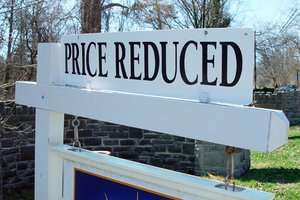By: G. M. Filisko
While you’d like to get the best price for your home, consider our six reasons to reduce your home price.
Home not selling? That could happen for a number of reasons you can’t control, like a unique home layout or having one of the few homes in the neighborhood without a garage. There is one factor you can control: your home price.
These six signs may be telling you it’s time to lower your price.
1. You’re drawing few lookers
You get the most interest in your home right after you put it on the market because buyers want to catch a great new home before anybody else takes it. If your real estate agent reports there have been fewer buyers calling about and asking to tour your home than there have been for other homes in your area, that may be a sign buyers think it’s overpriced and are waiting for the price to fall before viewing it.
2. You’re drawing lots of lookers but have no offers
If you’ve had 30 sets of potential buyers come through your home and not a single one has made an offer, something is off. What are other agents telling your agent about your home? An overly high price may be discouraging buyers from making an offer.
3. Your home’s been on the market longer than similar homes
Ask your real estate agent about the average number of days it takes to sell a home in your market. If the answer is 30 and you’re pushing 45, your price may be affecting buyer interest. When a home sits on the market, buyers can begin to wonder if there’s something wrong with it, which can delay a sale even further. At least consider lowering your asking price.
4. You have a deadline
If you’ve got to sell soon because of a job transfer or you’ve already purchased another home, it may be necessary to generate buyer interest by dropping your price so your home is a little lower priced than comparable homes in your area. Remember: It’s not how much money you need that determines the sale price of your home, it’s how much money a buyer is willing to spend.
5. You can’t make upgrades
Maybe you’re plum out of cash and don’t have the funds to put fresh paint on the walls, clean the carpets, and add curb appeal. But the feedback your agent is reporting from buyers is that your home isn’t as well-appointed as similarly priced homes. When your home has been on the market longer than comparable homes in better condition, it’s time to accept that buyers expect to pay less for a home that doesn’t show as well as others.
6. The competition has changed
If weeks go by with no offers, continue to check out the competition. What have comparable homes sold for and what’s still on the market? What new listings have been added since you listed your home for sale? If comparable home sales or new listings show your price is too steep, consider a price reduction.
More from HouseLogic
How to ready your home for sale at little cost
How to review offers on your home
Other web resources
Setting the right price
More on setting the right price
G.M. Filisko is an attorney and award-winning writer who made strategic price reductions that led to the sale of a Wisconsin property. A frequent contributor to many national publications including Bankrate.com, REALTOR® Magazine, and the American Bar Association Journal, she specializes in real estate, business, personal finance, and legal topics.



 If you don’t receive any offers for a few weeks, check out other comparable houses on the market and what they’re going for. Image: Liz Foreman
If you don’t receive any offers for a few weeks, check out other comparable houses on the market and what they’re going for. Image: Liz Foreman



